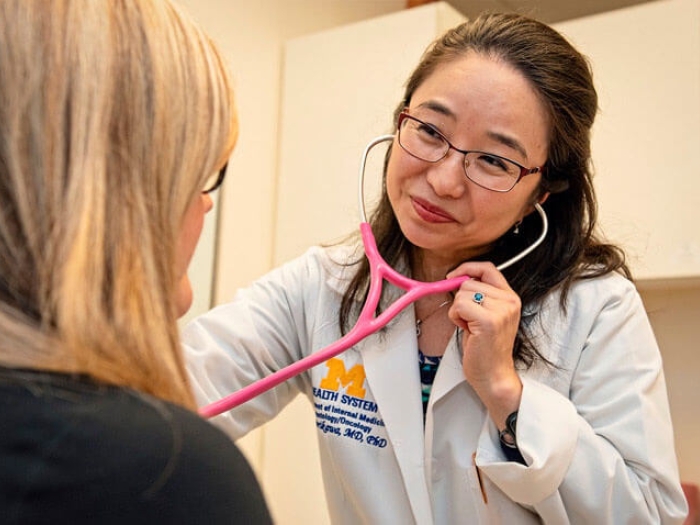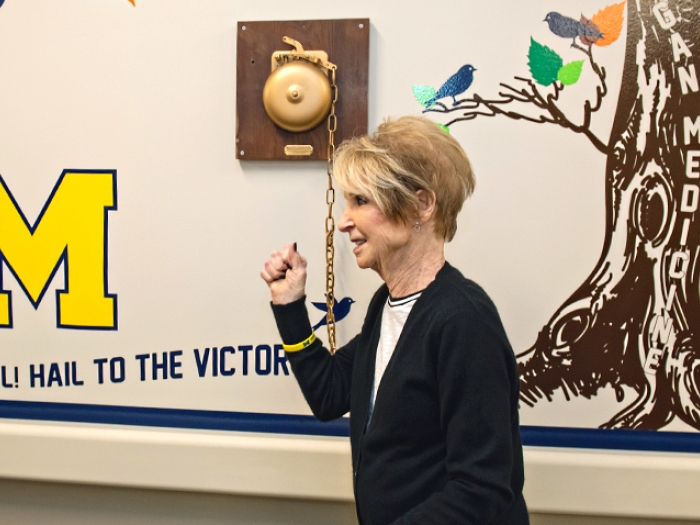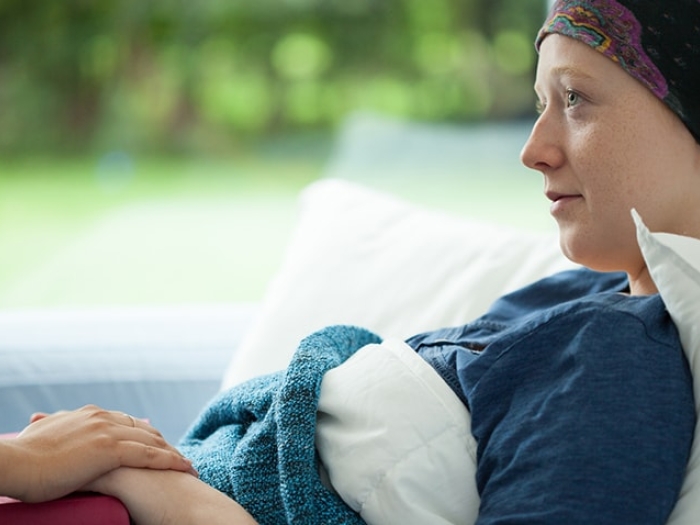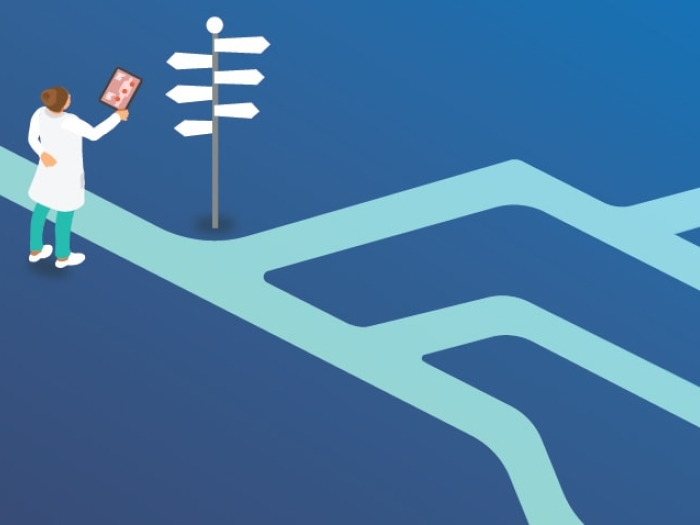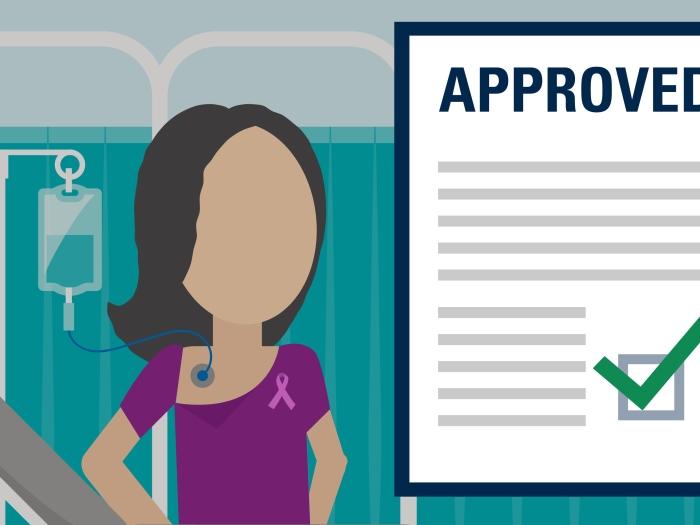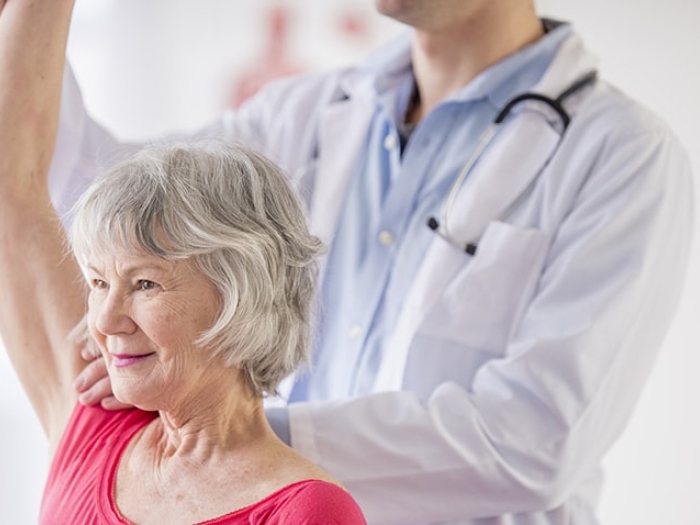Cancer patients whose conditions don’t respond to standard therapies might be drawn to clinical trials. A trio of U-M participants share their experience.
7:00 AM
Author |
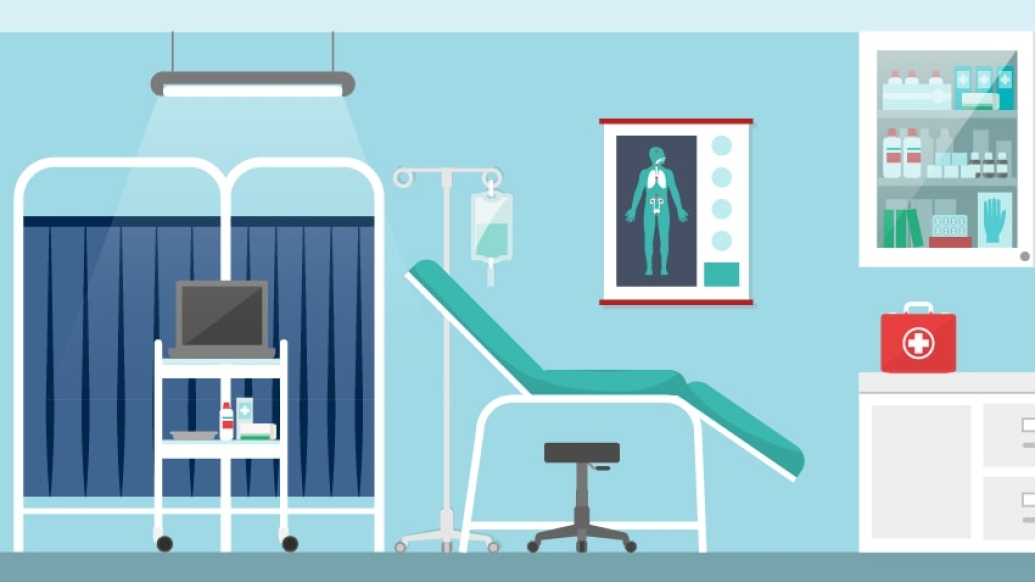
Every cancer patient understands the excruciating moment of waiting for the oncologist to tell them whether a treatment is working.
When the answer is "no," a clinical trial could be the next move.
SEE ALSO: How a Pair of Blue Boxers End Up on Mount Kilimanjaro
As a final step required for a new therapy to obtain approval by the Food and Drug Administration, clinical trials are vastly important to cancer research.
"The dedication and commitment of patients to participate in clinical trials is what drives improvements in cancer care," says Christopher Lao, M.D., an oncologist with the multidisciplinary melanoma clinic at the University of Michigan Rogel Cancer Center.
And thanks to Vice President Joe Biden's cancer moonshot initiative boosting cancer research dollars in the United States, many new therapies are being studied.
Of particular interest: immunotherapy (boosting the body's own immune system to stop cancer) and precision medicine (targeting and stopping specific genes known to fuel cancer). Both have resulted in therapies that are effective against some cancers, with fewer negative side effects.
A willing patient, however, might have many questions — with concerns ranging from time commitment and side effects to how they'll be treated as a test subject.
Here, three U-M patients with advanced cancers share their stories of participating in clinical trials and how it affected their health.
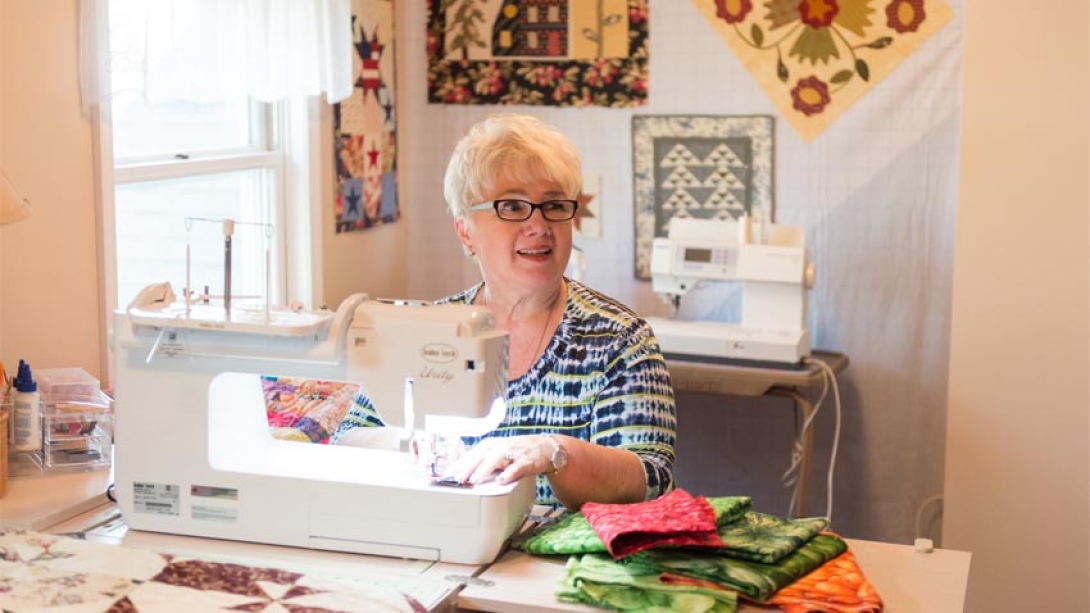
Immunotherapy against melanoma
What began innocently enough as an appointment to assess a changing mole on Christine Knight's back led to a serious diagnosis: Stage 4 melanoma.
"I had heard that for people with stage 4 melanoma, your chances of being around very long are pretty slim," Knight says. "My doctor said it could be seven months or maybe a couple years."
Knight, then, met Lao on Christmas Eve of 2013 and told him she was looking for hope. There is always hope, he responded, suggesting she consider a clinical trial that might be a good fit.
Preparations for the trial — six cycles of drug-infusion treatments over a period of five months — were thorough.
"I had a biopsy, brain MRI and bloodwork," Knight says. "My first day, they drew blood to get ready for the trial and collected all the data they need to enter. They checked blood pressure and did all kinds of tests before my first infusion."
Knight never had reservations about participating in a clinical trial, but she's glad she took the initiative.
Today, she has no signs of cancer. Knight receives scans regularly; there has been no recurrence.
"I felt (the clinical trial) was my only option because of the type of cancer I had," she says. "I went into it with a good feeling that this is going to work."
Read her full story in Thrive.
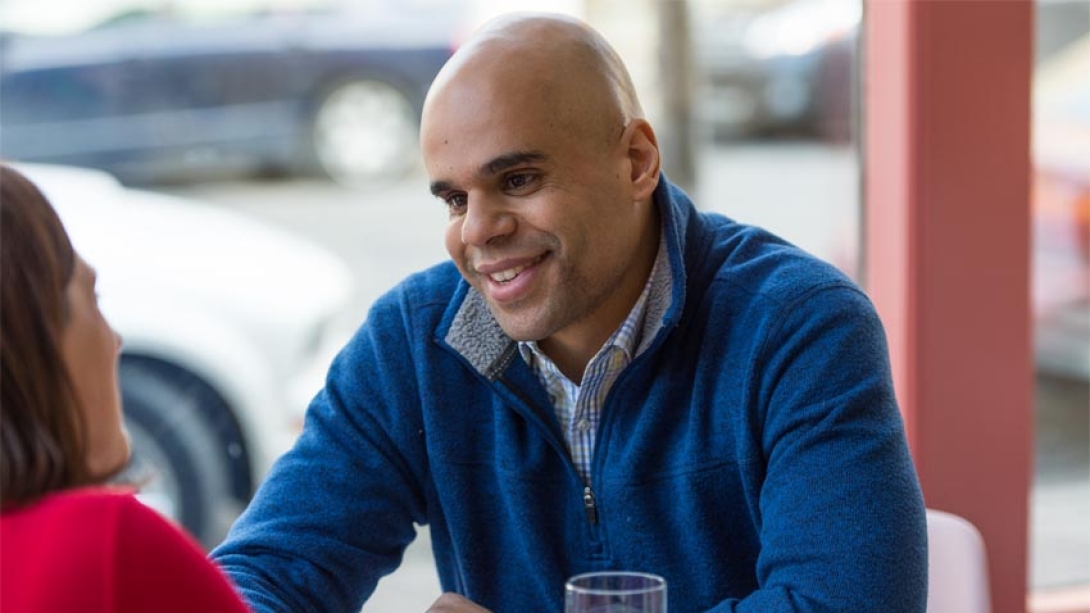
Improved quality of life
When Mike Sanders bumped his leg at the gym and experienced a pain far worse than the actual injury, he decided to see his doctor.
SEE ALSO: 7 Ways to Support a Friend with a New Cancer Diagnosis
The culprit: Sarcoma, a rare form of cancer of the tissue that connects and supports the body. It was in his right thigh.
Aggressive standard treatment was unsuccessful.
"I was not seeing positive results," says Sanders, noting that his side effects included exhaustion, fatigue and neuropathy. "I didn't see any of the positives like potential life extension or control of the disease."
Meanwhile, Sanders' cancer had spread to his lungs.
His remaining options were hospice care or to participate in an immunotherapy study under the care of Rashmi Chugh, M.D.
Sanders, an athlete who enjoys basketball and working out, chose the latter.
"They can't make promises," he says. "You don't get specifics on other patients in the trial, but I knew some people were doing well and some weren't having as good of results."
But Chugh, a U-M oncologist, saw positive signs in Sanders several months into his clinical trial.
"Mike had dramatic shrinkage in his cancer with minimal side effects," she says. "We are still trying to figure out why immunotherapies work in some patients and not others. We were so happy to get the chance to try it in Mike and that he was able to benefit from this treatment while preserving his quality of life."
While doctors have since observed some slight growth in his tumors, others appear to have stopped growing or died.
Read his full story in Thrive.
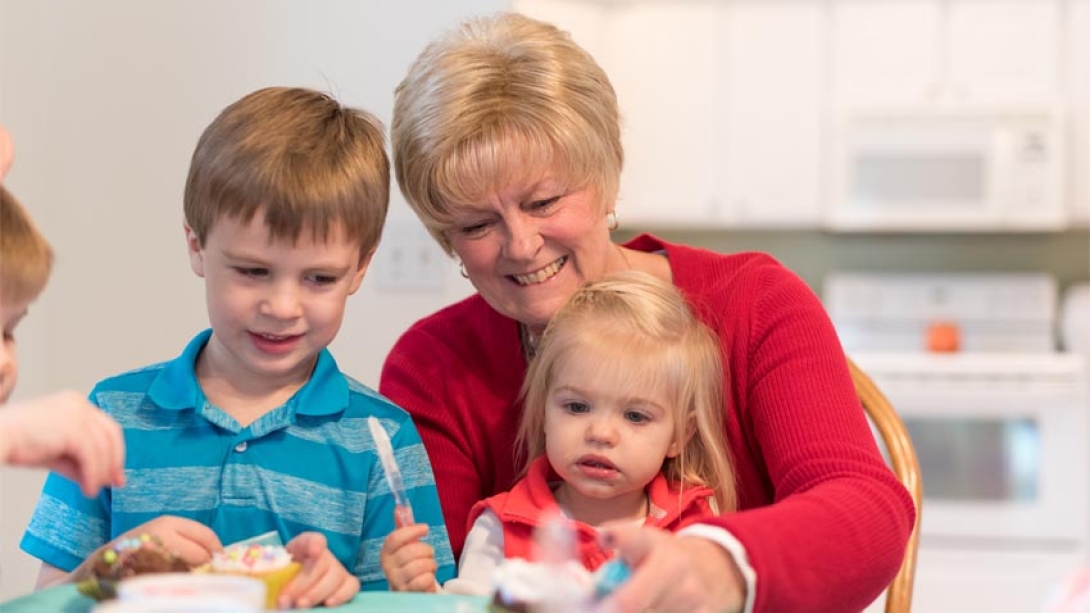
Solving a puzzle
In just a few months, Nancy Van Dyke went from a healthy person who had never even taken an antacid to a person with metastatic bile duct cancer. She tried chemotherapy at a hospital close to home, but it did not work.
Van Dyke then went to the University of Michigan, where she agreed to a genetic sequencing biopsy available to patients with advanced cancer. Such procedures pinpoint problematic genetic mutations and can suggest the best potential therapies.
The sequencing identified two proteins coming together to fuel Van Dyke's cancer.
Her regimen for the clinical trial, a medicine taken in pill form, is closely monitored.
"They have to do an EKG within so many minutes of me taking a drug," Van Dyke says. "Tomorrow, I have to go and get blood drawn in special tubes. I ask questions, they tell me what to expect and what comes next."
Such clinical research is a team effort, Chugh notes.
"Most of us meet on a weekly or a biweekly basis to ensure adequate communication about each of our patients and each research study," she says. "It is quite amazing to see how much effort goes into each patient on a clinical research study. Everyone involved along each step of the way has the same ultimate goal: finding a new strategy to help our patients."
Although Van Dyke didn't know whether she was taking a placebo or the trial drug, she learned good news about nine weeks into the treatment: Her cancer is shrinking. As such, she'll be able to continue on the medication that could be aiding her recovery.
Says Van Dyke: "I feel so blessed."
Read her full story in Thrive.

Explore a variety of healthcare news & stories by visiting the Health Lab home page for more articles.

Department of Communication at Michigan Medicine
Want top health & research news weekly? Sign up for Health Lab’s newsletters today!
